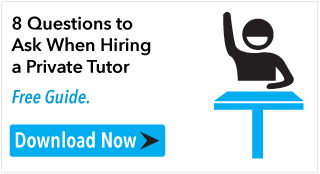Last time, we shared three of five tips for success on the MCAT. The first three tips were:
Five Tips for Successful MCAT Prep: Part 1
 The MCAT is a beast of an exam – there’s no way around it – and for many of you, it will also likely be your first real challenge academically, in terms of necessary preparation, exam intensity and sheer volume of subject matter. It won’t be easy, regardless of your IQ or SAT scores, but with a little bit of assistance and a whole lot of dedication, it is absolutely doable and within your reach.
The MCAT is a beast of an exam – there’s no way around it – and for many of you, it will also likely be your first real challenge academically, in terms of necessary preparation, exam intensity and sheer volume of subject matter. It won’t be easy, regardless of your IQ or SAT scores, but with a little bit of assistance and a whole lot of dedication, it is absolutely doable and within your reach.
If you’ve made it this far in school, progressing through the pre-med curriculum, you certainly have what it takes to make it into medical school and beyond. The issue now is how do you make the most of your abilities and the time you have to study between now and testing day? There are a host of answers – some better than others – and separating the wheat from the chaff can sometimes seem daunting.
Below we consider the first three of five recommendations, offered with confidence that some or all may prove helpful in your studies and preparation. Check back in a week for the final two recommendations:
#1 Know Your Strengths and Weaknesses
Very few students are completely well prepared across the board. As human beings, we all have different aptitudes and innate capabilities that make us uniquely suited for various tasks, including studying. Unless you’re one of the lucky few geniuses who effortlessly knows everything expertly and equally well, you should have an idea by now as to which subjects or topics are easier or harder for you to learn and master. Use this knowledge to your advantage when deciding on your division of labor.
If biology has always been a snap for you, and chemistry still befuddles you, then slant your time and priorities towards those areas that need it most. For me, physics and verbal were well under control (an odd mix, I know), so I tended to stress the other areas more heavily. To be certain, you cannot get away with completely neglecting any one area or only working on another (unless you fit the envied category above). But since all the questions are worth the same amount, and the test makers probably do their best to evenly distribute from among the major disciplines, why not use probability and the law of averages in your favor? A good balance of knowledge will almost definitely serve you better on this test than will being a standout in one area, at the expense of others.
#2 Use Mnemonics
The advice is simple: use any device, of any sort, that will aid you in remembering all the information required. It absolutely does not matter what it is that works for you, as long as it works. And the more personalized (and perhaps even humorous) you can make it, the better.
A common mnemonic is of course the acronym, where each letter stands for a different word/phrase/concept that must be recalled as part of a group or sequence. But acronyms merely scratch the surface of all the possible ways to wander with these tools. Whether it involves songs, literature, pop culture references, family traditions or any number of other potential wells of connection, use these devices to your advantage whenever and wherever possible.
Quite simply, it is the best possible way to efficiently memorize a lot of information that is otherwise unbelievably boring to you. Their effectiveness lies in making connections between this material and things that you might possibly care about enough to remember in your ordinary life. And in general, the funnier and wackier the mnemonic, the more memorable it becomes.
#3 Read the Answers First
Both during preparation and on the real exam, and particularly with questions based on passages, read the answers before you read the questions. Sounds bizarre, but it works. Doing so will give you an idea of what they’re looking for prior to ever reading the question, and it often allows you to predict the question entirely.
This gives you a practical advantage as well as a psychological one. Hopefully, considering the actual question will be a necessary afterthought once you’ve perused the possible responses, but it will certainly give you a head start regardless. But perhaps more importantly, a bit of success with this method begins to offer a distinct edge in terms of confidence. And as we all know, that can carry you quite a distance in the test-taking world.
We hope you enjoyed these first three MCAT tips. Stay tuned for our final two tips in the coming weeks.
If you're interested in private, 1-1 MCAT tutoring, visit our MCAT tutoring page.
Gary Rothbard is a Senior Tutor for MyGuru. Gary got his B.S. in Biopsychology at the University of Michigan followed by his MD at Robert Wood Johnson Medical School. He no longer practices medicine, and has also obtained an MS in Science Education. He has over twenty years of tutoring experience.

